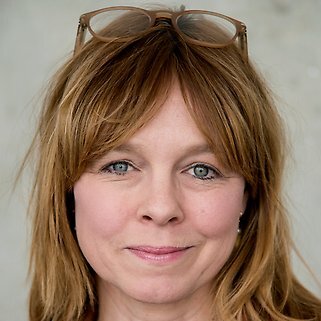Donderdag 4 december 2025 om 20.00 uur
Asst. Prof. Ulrika Björk | Södertörn University
Lezing in het Engels.
Lezing in lokaal R.013, Rodestraat 14, 2000 Antwerpen
Deelname is gratis. Inschrijven per e-mail: ijs@uantwerpen.be.
Hannah Arendt’s status and originality as a political thinker have long engaged scholars, particularly those intrigued by the tension she identifies between philosophy and politics - a tension she traces back to the ancient Greek opposition between the contemplative and the political life (Arendt 1958, 1990; cf. e.g., Benhabib 1996; Cavarero 2002). While this tension is arguably addressed in Arendt’s critical examination of truth (episteme) and opinion (doxa), as well as through her reflections on the activity of thinking, another paradox seems to persist. Insofar as Arendt’s political philosophy is also recognized as Jewish, it emerges as both Greek and Hebrew in origin, both secular and non-secular (in modern terms), and rooted in both reason and faith. Drawing on Agata Bielik-Robson’s (2014) Derridean conception of Jewish philosophy as a “third language” – in which “Jewish thinkers talk Hebrew in words, concepts, and arguments bequeathed to them by Greek philosophers” (Bielik-Robson 2014, 3, 7) – Björk argues that Arendt’s originality as a political thinker stems in part from the ‘non-secular secularism’ she shared with figures such as Gershom Scholem and Walter Benjamin (cf. Scholem 1976), a legacy reflected in the biblical fragments scattered throughout her work. Engaging in dialogue with, among others, Vivian Liska (2021), Björk will advance this claim by analysing a passage about the biblical Abraham in Arendt’s The Human Condition.

Ulrika Björk (° 1970) is a senior lecturer in philosophy at Södertörn University in Stockholm. She received her doctorate in 2009 with a study of Simone de Beauvoir’s philosophical and literary investigations of subjectivity. Her main research fields are phenomenology and continental philosophy, early 20th century Jewish thought, and feminist philosophy. Since 2024 is the head of the research project Experimenting with Traditions: The Life and Afterlife of 20th Century Jewish Intellectual Culture in the Baltic Sea Region, funded by The Foundation for Baltic and East European Studies. Her current research engages with Hannah Arendt’s problematisation of tradition from the perspective of her Jewish writings. She recently edited a special issue on political theology and Jewish political thought for Nordisk judaistik/Scandinavian Jewish Studies (vol. 36, no. 1, 2025).